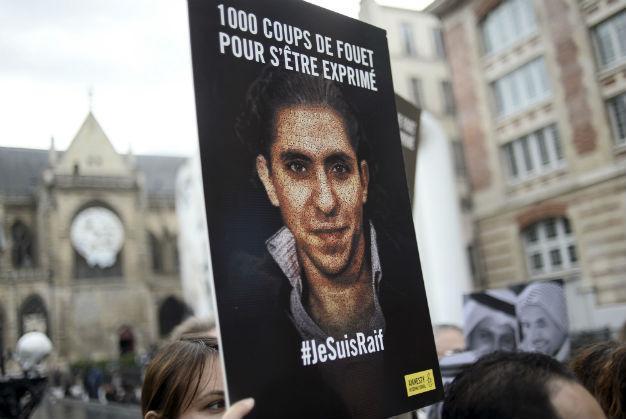Sister of jailed Saudi blogger imprisoned: NGO
MONTREAL – Agence France-Presse

AFP photo
The sister of Saudi blogger Raif Badawi, who was recently sentenced to 10 years in prison and 1,000 lashes, was arrested Jan. 12, Amnesty International said, calling it “damning proof” of the kingdom’s human rights abuses.
Samar Badawi was detained in the morning on Jan. 12 in Jeddah with her two-year-old daughter and interrogated by police for four hours before being transferred to Dhaban prison, the NGO said in a statement.
Raif Badawi’s wife, Ensaf Haidar, posted on Twitter that her sister-in-law was arrested on charges that she was managing a prominent human-rights activist’s account.
That activist, Waleed Abulkhair, who is also Samar Badawi’s ex-husband, is serving out a 15-year jail sentence.
Samar Badawi was “arrested on the charge of directing @WaleedAbulkhair,” Haidar, who is a refugee in Quebec, Canada, said on Twitter.
The arrest “demonstrates the extreme lengths to which the authorities are prepared to go in their relentless campaign to harass and intimidate human rights defenders into silent submission,” said Philip Luther, director of Amnesty’s Middle East and North Africa program.
Samar Badawi, who has been under a travel ban by the country’s Ministry of the Interior since December 2014, will appear before a judge next week, the non-profit organization said.
“The arrest... is the latest example of Saudi Arabia’s utter contempt for its human rights obligations and provides further damning proof of the authorities’ intent to suppress all signs of peaceful dissent,” Amnesty added.
Raif Badawi, 31, was arrested in 2012 and convicted of “insulting Islam.”
His initial public flogging of 50 lashes in January sparked an international outcry against Saudi Arabia and its human rights record.
He co-founded the Saudi Liberal Network Internet discussion group, which promoted free speech and sought an end to the influence of religious leaders on public life in one of the world’s most conservative countries.
